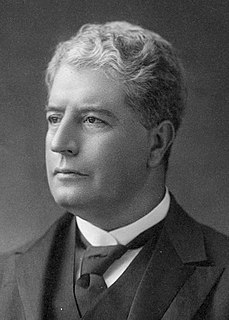A Quote by Aristotle
Aristocracy is that form of government in which education and discipline are qualifications for suffrage and office holding.
Quote Topics
Related Quotes
What I used to respect was not really aristocracy, but a set of personal qualities which aristocracy then developed better than any other system . . . a set of qualities, however, whose merit lay only in a psychology of non-calculative, non-competitive disinterestedness, truthfulness, courage, and generosity fostered by good education, minimum economic stress, and assumed position, AND JUST AS ACHIEVABLE THROUGH SOCIALISM AS THROUGH ARISTOCRACY.
The natural aristocracy I consider as the most precious gift of nature for the instruction, the trusts, and government of society. And indeed it would have been inconsistent in creation to have formed man for the social state, and not to have provided virtue and wisdom enough to manage the concerns of the society. May we not even say that that form of government is the best which provides the most - for a pure selection of these natural aristoi into the offices of government?
The legislator should direct his attention above all to the education of youth; for the neglect of education does harm to the constitution. The citizen should be molded to suit the form of government under which he lives. For each government has a peculiar character which originally formed and which continues to preserve it. The character of democracy creates democracy, and the character of oligarchy creates oligarchy.
I venture to claim two qualifications for the great office which I hold, which to my mind, without making invidious distinctions, is one of the most important that can be held by any Englishman; and those qualifications are that in the first place I believe in the British Empire, and in the second place I believe in the British race. I believe that the British race is the greatest of the governing races that the world has ever seen.
EDUCATION, n. The bringing up, as of a child; instruction; formation of manners. Education comprehends all that series of instruction and discipline which is intended to enlighten the understanding, correct the temper, and form the manners and habits of youth, and fit them for usefulness in their future stations. To give children a good education in manners, arts and science, is important; to give them a religious education is indispensable; and an immense responsibility rests on parents and guardians who neglect these duties.
?A general State education is a mere contrivance for moulding people to be exactly like one another; and as the mould in which it casts them is that which pleases the dominant power in the government, whether this be a monarch, an aristocracy, or a majority of the existing generation; in proportion as it is efficient and successful, it establishes a despotism over the mind, leading by a natural tendency to one over the body.
The devotion of democracy to education is a familiar fact. The superficial explanation is that a government resting upon popular suffrage cannot be successful unless those who elect and who obey their governors are educated. Since a democratic society repudiates the principle of external authority, it must find a substitute in voluntary disposition and interest; these can be created only by education.
They that are discontented under monarchy, call it tyranny; and they that are displeased with aristocracy, call it oligarchy: so also, they which find themselves grieved under a democracy, call it anarchy, which signifies the want of government; and yet I think no man believes, that want of government, is any new kind of government.
... Washington was not only an important capital. It was a city of fear. Below that glittering and delightful surface there is another story, that of underpaid Government clerks, men and women holding desperately to work that some political pull may at any moment take from them. A city of men in office and clutching that office, and a city of struggle which the country never suspects.
Thus, experience has ever shown, that education, as well as religion, aristocracy, as well as democracy and monarchy, are, singly, totally inadequate to the business of restraining the passions of men, of preserving a steady government, and protecting the lives, liberties, and properties of the people . . . . Religion, superstition, oaths, education, laws, all give way before passions, interest, and power, which can be resisted only by passions, interest, and power.
There are still two forms besides democracy and oligarchy; one of them is universally recognized and included among the four principal forms of government, which are said to be (1) monarchy, (2) oligarchy, (3) democracy, and (4) the so-called aristocracy or government of the best. But there is also a fifth, which retains the generic name of polity or constitutional government.







































